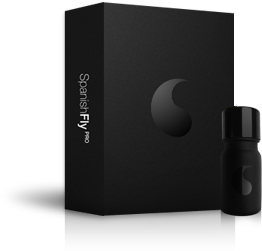After undergoing chemotherapy, many cancer survivors begin to reassess various aspects of their lives, with sex after chemotherapy being a significant area of interest. The transition from patient to survivor brings a new set of challenges, particularly in reclaiming one’s sexual health and intimacy. This crucial aspect of recovery is often shrouded in silence, yet it’s essential for overall well-being.
In this article, we focus on “Sex After Chemotherapy”, delving into the intimate concerns that survivors may face and providing actionable insights to improve sexual health and intimacy post-treatment. Our goal is to help you navigate the complexities of resuming a fulfilling sex life after chemotherapy, addressing both the physical and emotional barriers that may arise.
Sexuality After Chemotherapy Treatment
Treatment for any type of cancer brings several sexual changes. It’s the same regardless of the cause: chemotherapy, surgery, and radiation. They all bring similar results. Chemotherapy and surgery, in particular, can have patients experiencing changes in several areas at the same time: desire, arousal, and being able to orgasm.
However, not everyone experiences changes.
The most common change is a hindered sex drive, perhaps due to all the stress from the disease and its treatment. There are also physiological changes for both men and women – erection problems or vaginal pain and dryness during sexual activity.
Usually, people can still have orgasms despite these issues with erections or lubrication, even if parts of their pelvic organs were removed. They might just need additional stimulation or more time to reach orgasm.
Other side effects of chemotherapy can take a toll on your sex drive and performance. You might experience nausea and vomiting, constipation or diarrhea, sensitivity to certain smells and tastes, fatigue, and, of course, hair loss, scars, and weight fluctuation.
There are medications to treat most of these consequences, but some of them can also hinder your sex drive or ability to orgasm.
During cancer treatment, having sex is normally safe, but it’s still a good idea to bring up the subject with your doctor before doing anything.

How to Improve Your Sex Life Post-Chemotherapy
When you do experience changes, they tend not to improve immediately. Finding an effective solution requires patience; this is because both physiological and psychological factors can cause them.
Changes related to cancer treatment are particularly lengthy, and some are permanent. You should always ask about the changes you should expect from your practitioners, both related to cancer and treatment. This makes it easier for you to be prepared to face them and perhaps even find solutions beforehand. As soon as you experience something different, consult with your health team.
If you have sex during treatment, you should use barrier contraception. Even after culminating treatment, you should maintain the practice for at least a month, especially with chemotherapy or radiation treatments, since they can transfer to semen and vaginal fluids.
Additionally, pregnancy during chemotherapy or right after often results in birth defects.
Finally, chemotherapy can cause trouble with your immune system, so make sure to ask your doctor about what you can expect once you begin intimacy.
Maintaining Intimacy and Sexual Health After Chemotherapy
After finishing cancer treatment, you’ll realize that your sex life may be quite different from how it was before. You might have a lower sex drive, and changes in your body during treatment might have you feeling more self-conscious than usual, especially if surgery is necessary.
Losing your hair or shifting weight is the path towards losing confidence, and you can also develop bladder or bowel issues while adapting.
Sure, some of these effects are gone within a few days, but others can stay with you for up to a few years. Men exiting treatment for prostate cancer can develop erectile dysfunction, i.e. trouble getting an erection or keeping it; women with hormone or radiation therapy can develop excessive vaginal dryness.
However, you don’t have to forget about better sex after chemotherapy. As long as you develop your confidence and connect with your partner, you’ll just need a bit of patience to get your sex life back to how it was before.
Trying different approaches to affection
Even if you don’t want to have sex in particular, you should still show your love by kissing, cuddling, bathing together or even massaging each other. Intimacy is critical for better sex after chemotherapy, and if you can strengthen your bond, your sex life will simply follow suit.
Trying new things
Some people might discover that what used to work for them doesn’t anymore. In this case, an open mind is vital, since you want to try new things and see what makes you feel aroused now; some people develop stronger sensitivity in some areas as a consequence.
Keep comfort in mind
After completing cancer treatment, your priority should be feeling comfortable both with your partner and with yourself. That means that you should never put yourself through any discomfort, and if you need to buy extra lubricant or keep the room dark, do it.
Medical guidance for sex after chemotherapy
Several medications can make it easier to maintain a healthy sex life, but some drugs can hinder it. You should always consult with your doctor before taking or stopping any medication.
Besides, being open with your doctor might give you access to different solutions, like penile implants or vaginal dilators. They can be the best help if you’re experiencing any discomfort and don’t know how to solve it.
Embracing body changes and their impact on sex post-chemotherapy
Some types of cancer require removing body parts, and that’s often traumatic for patients. You want to be honest with your partner and yourself about how you want to deal with this issue. You might not want to touch it, or you might not care (or even like it!).
It’s paramount to discuss these issues before proceeding.
Other types of cancer and treatment might result in patients’ bodies working differently. For instance, colorectal cancer patients might need to have an ostomy bag – at least for a while. If it makes you feel uncomfortable, you can consider hiding it with a shirt or other covering.
Building confidence for a fulfilling sex life after chemotherapy
Lastly, don’t let any physical changes make you think differently or forget about what you like about yourself. Make sure to set some time apart for activities that help you build confidence and include your partner if possible.
Improving your confidence will make it a lot easier to relax and enjoy sex with your partner, and you might even discover more parts of your body that you didn’t know you liked.

Navigating Changes in Women’s Sexual Health Post-Chemotherapy
Vaginal dryness is the main discomfort that women can expect during and after chemotherapy treatment. Women might also experience inflammation and thinning of their vaginal tissue, which increases the sensation of tightness.
These changes are mostly brought by estrogen deficiency in the area.
The best way to correct this issue is to use lubricant when engaging in sexual activity. There are countless brands and types, so it’s also a good way to discover new tastes and likes. Just keep in mind some can be irritating.
You want to stay away from “alternative” lubricants, like Vaseline or lotion since they can damage preservatives and even cause infections.
Another option is vaginal moisturizers, which you can use a couple of times per week even if you’re not having sex. They lack estrogen, and they help your vaginal tissue recover its natural moisture levels.
Some women might also benefit from vaginal estrogen. You can find them as creams, tablets, and even rings. It’s mostly absorbed locally and only a small amount enters the bloodstream. However, you should consult with an oncologist before using these products.
Another option is to use natural supplements, like Spanish Fly Pro, before sex, as we talked about before. It helps to increase your arousal before having sex with your partner. This natural aphrodisiac can help ease pain as it offers vaginal lubrication. Also, it comes with no side effects. Did we add that it can make your sex life more interesting too as it stimulates your libido levels and helps in arousal?
Besides physical solutions, seeking psychological help is advised since the stress levels brought by cancer and chemotherapy are nothing to scoff at. Strengthening your bond in your relationship through effective communication must also be a priority.

Addressing Men’s Sexual Concerns Following Chemotherapy
In most cases, during chemotherapy, men can still reach orgasm and feel pleasure during sex; however, it’s always a good idea to discuss the issue with your practitioner since all cases are different.
If men experience sexual issues, a urologist can offer different treatments for the issue, including erectile dysfunction. Luckily, chemotherapy doesn’t cause erectile dysfunction too often; your desire is what’s more likely to change in this case.
As with women, men’s sexuality takes a significant hit from cancer and chemotherapy. It’s felt through the physical, emotional, and social side of sex.
Similarly, again, women, not all men perceive these changes in the same way. Some might not even see changes to their sex drive. Being open and honest with your significant other should still be a priority.
Penile vacuums or Viagra might be a necessity for some. Speaking with your doctor or urologist is always the best path to finding effective solutions. Natural supplements, like Spanish Fly Pro, can also offer an affordable and side-effect-free solution.
Guidance on Unprotected Sex and Safety After Chemotherapy

People in stable, long-term, and monogamous relationships tend to practice unprotected sex, maybe trying for a child or just out of personal preference. Therefore, this is a common question when finishing chemotherapy.
The amount of time taken by the chemotherapy treatment to clear from your body (its half-life) is a critical consideration. You should avoid unprotected sex until the drug clears completely from your system; otherwise, your sexual partner can be exposed to the chemicals through vaginal fluids or semen.
Other patients who should avoid sexual activity altogether are those whose treatments can make them thrombocytopenic or neutropenic. However, they can resume their sex life after resolution of the cytopenia.
When pregnancy is a possibility, you should refrain from unprotected sex unless discussed and approved by the oncology team. Chemotherapy can have longer effects on perm or egg cells, and this could result in birth problems.
FAQs
Have a few questions about sex life after chemotherapy? We try to answer them below.
- Will my sex drive come back after chemo?
Sex drive after chemotherapy is mostly hindered by psychological causes or medication. Once these issues are resolved (if they ever arise), your sex drive will return to normal.
- Does chemotherapy kill one’s sex drive?
Chemotherapy itself rarely affects sex drive, since it’s not strictly related to hormones. However, stress, depression, and self-esteem issues caused by the treatment can lower your sex drive.
- Can sex hurt me after chemotherapy?
Chemotherapy often causes vaginal dryness, so if you don’t use additional lubricants, you’ll probably experience pain during sex.
- Can you kiss after chemo?
It depends on the type of chemotherapy received, but it’s usually not a problem. Asking your doctor should clear this doubt quickly.
Sources:
- Constructions of sex and intimacy after cancer: Q methodology study of people with cancer, their partners, and health professionals | https://link.springer.com/article/10.1186/1471-2407-13-270
- Current management of erectile dysfunction after cancer treatment | https://journals.lww.com/co-oncology/Abstract/2009/07000/Current_management_of_erectile_dysfunction_after.4.aspx
- Erectile Dysfunction After External Beam Radiotherapy for Prostate Cancer | https://www.sciencedirect.com/science/article/abs/pii/S0302283808003175
- Let’s talk about sex after cancer: exploring barriers and facilitators to sexual communication in male cancer survivors | https://onlinelibrary.wiley.com/doi/abs/10.1002/pon.3994
- Let’s talk about sex: Risky business for cancer and palliative care clinicians | https://www.tandfonline.com/doi/abs/10.5172/conu.2007.27.1.49
- Renegotiating Sex and Intimacy After Cancer | https://journals.lww.com/cancernursingonline/Abstract/2013/11000/Renegotiating_Sex_and_Intimacy_After_Cancer_.6.aspx
- Sexual Dysfunction After Cancer Treatment | https://www.tandfonline.com/doi/abs/10.1300/J077v09n01_02
- Sexual Life After Breast Cancer | https://www.tandfonline.com/doi/abs/10.1080/00926230050084632
- Sexuality and Fertility After Cancer | https://ashpublications.org/hematology/article/2005/1/523/19326/Sexuality-and-Fertility-after-Cancer
- Talking about sex after cancer: A discourse analytic study of health care professional accounts of sexual communication with patients | https://www.tandfonline.com/doi/abs/10.1080/08870446.2013.811242


